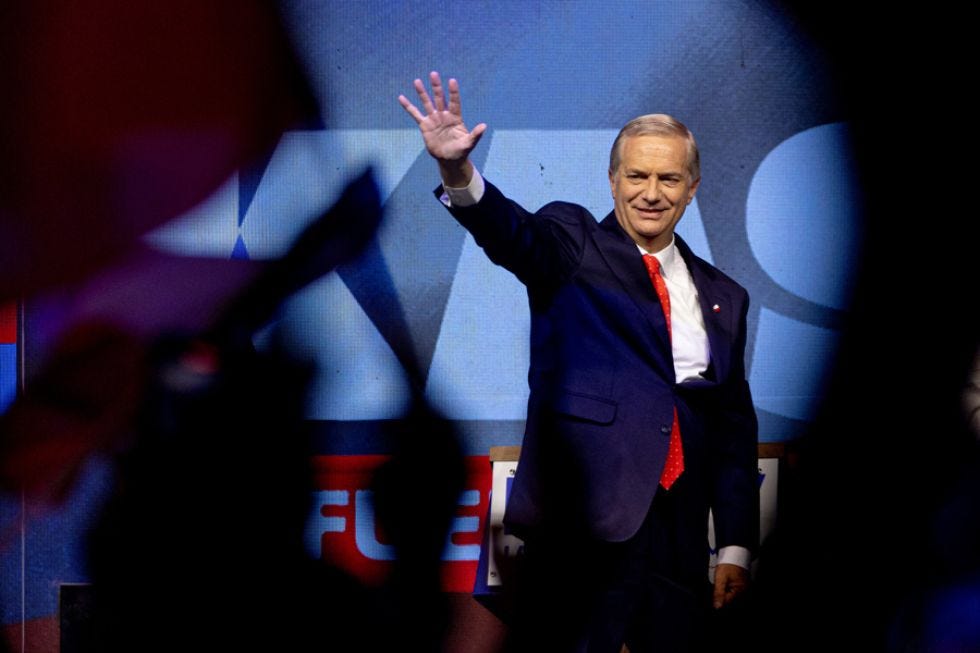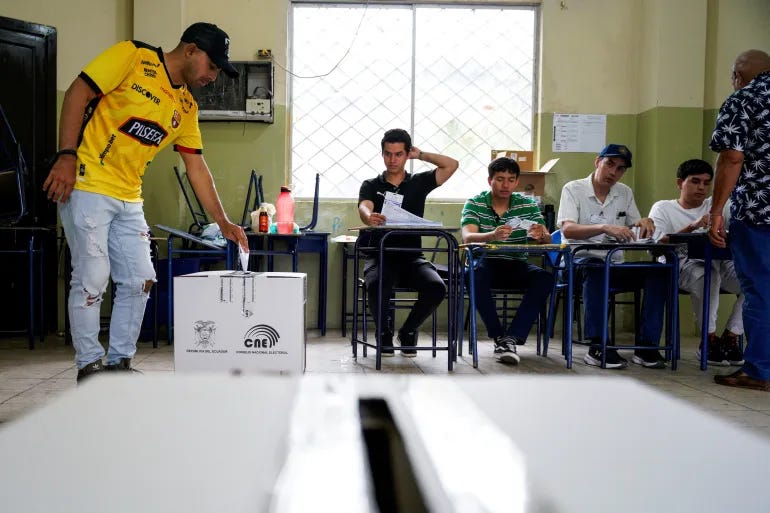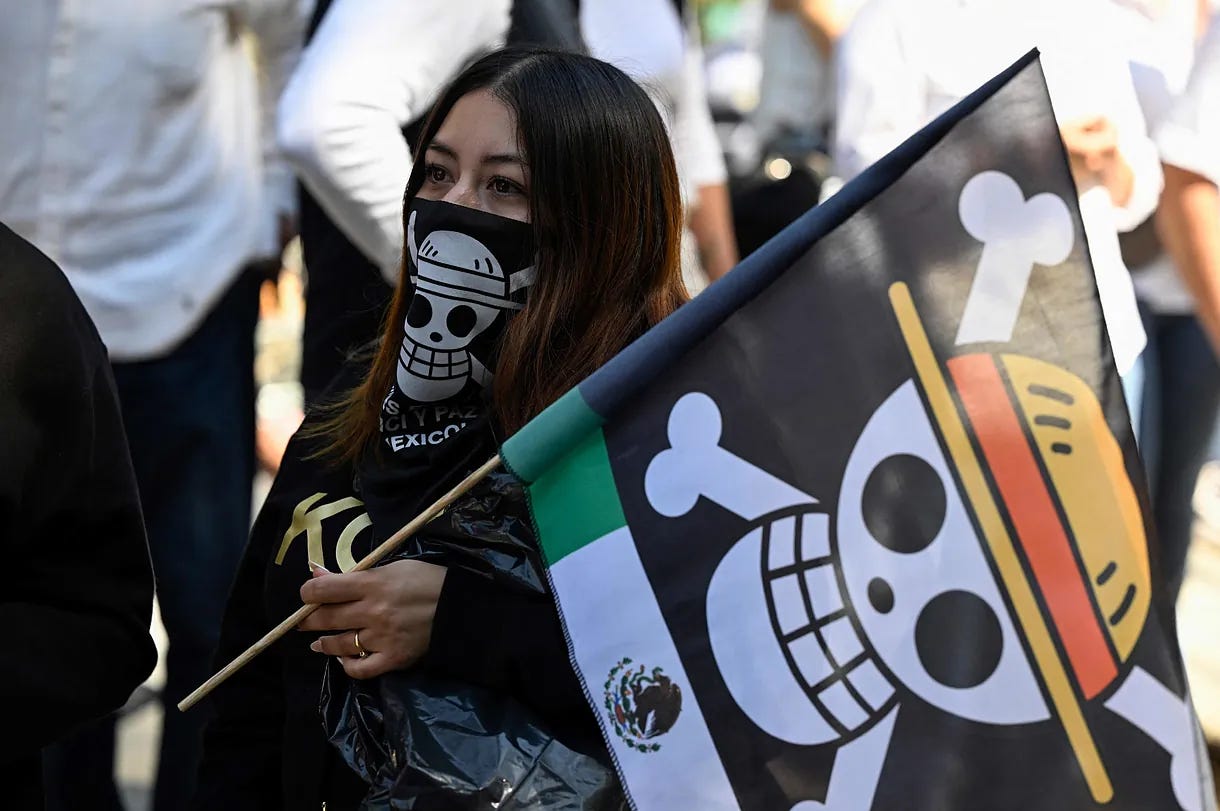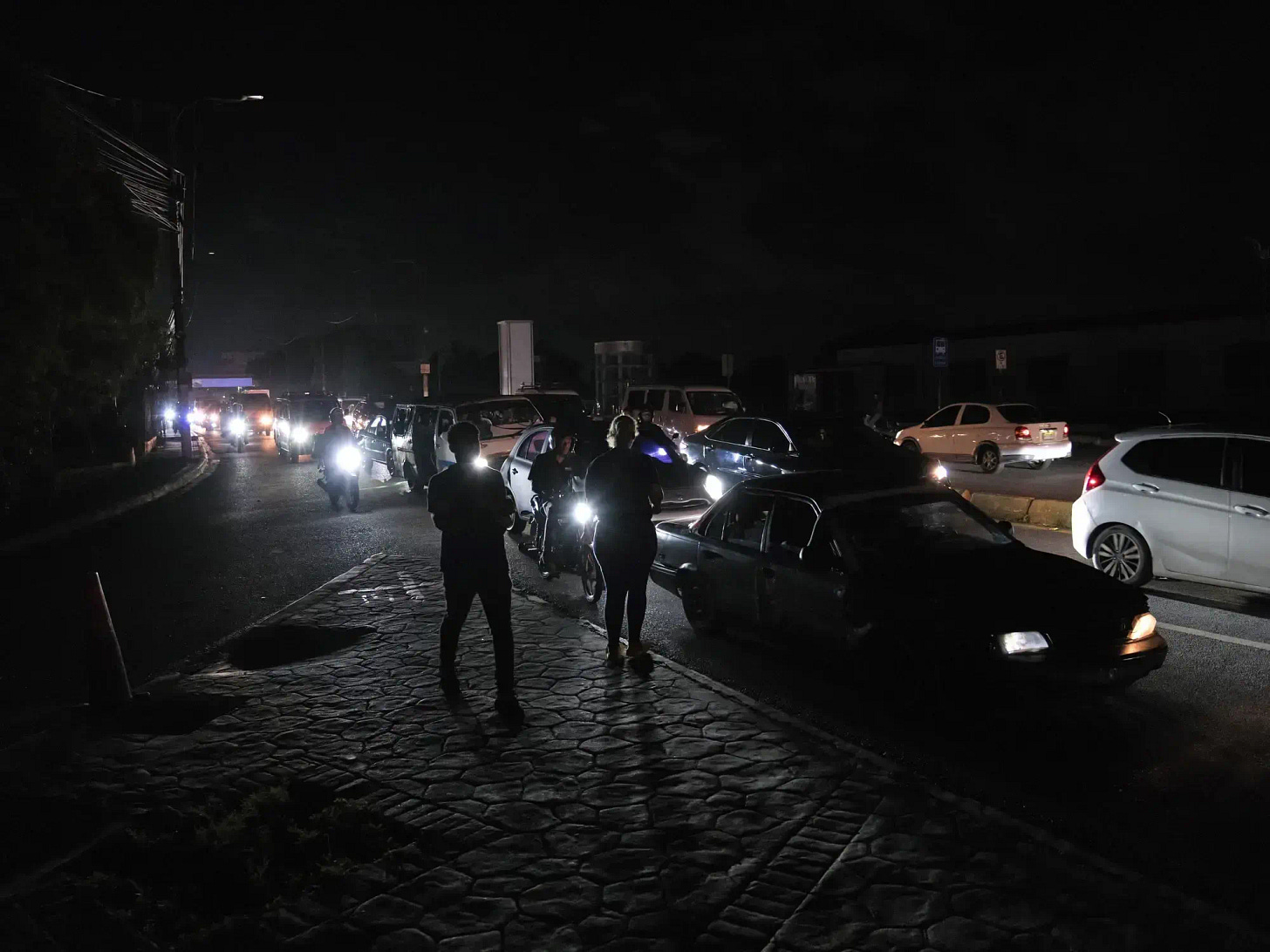The Left Won in Chile, But Not Really
Next month they will hold their most polarized runoff since the return to democracy.
Si quieres leer esta edición en tu idioma, suscríbete al canal de WhatsApp de LatAm Explained en español.

Today is November 17, and I’m getting ready to go out and report on the Velvet Revolution celebrations in Prague. Every year, Czechs mark 1989, the year their dictatorship ended peacefully and they began building a democracy. As I reflect on Central Europe’s changes, I also think about Chile and see a similar story there.
In 1988, a year before Prague’s revolution, Chile held a referendum. Pinochet lost, and the dictatorship ended. Like Czechoslovakia, Chile took on the hard work of rebuilding its government and finding a peaceful path forward, hoping for a better future.
Both countries are still seen as examples of how to end a dictatorship without destroying the nation.
But the reality is that, decades later, democracy has not given people in either country what they hoped for. Many feel overlooked, and when democracies let people down, frustration leads to division. In both Chile and the Czech Republic, this split is now helping right-wing movements.
For those of us who viewed Chile as a model of stable government, peaceful leadership changes, and careful economic decisions, this election feels odd. Gabriel Boric’s 2022 appointment looked like a major change from the post-Pinochet years. Although he came from a coalition that included communists, he has led with more common sense and restraint than many expected, and he has avoided the extreme ideas some feared.
The results from yesterday’s first round of the presidential election are clear. With mandatory voting restored, turnout rose to over 80 percent, making it one of the highest participation rates in the world. Boric-backed Jeannette Jara came in first with 26.8 percent, just ahead of José Antonio Kast with 24 percent. However, the bigger picture is that when you include Kast’s far-right allies, the right-wing vote adds up to more than 55 percent, while the center-left and left are still divided. Candidates like Evelyn Matthei, Franco Parisi, and Johannes Kaiser each won smaller but still important shares of the vote, showing just how divided Chile’s political scene is now.
This brings us to Jeannette Jara. Many people outside Chile call her a “hardline communist,” but that label is too simple. Her ideas follow the Chilean center-left tradition of slowly expanding social programs and working within the system. Even if you don’t agree with her, it’s clear she isn’t the threat some foreign commentators claim.
Still, the numbers speak for themselves. Jara had the most votes, but the second round is likely to favor the right. Unless something significant changes, José Antonio Kast will probably be Chile’s next president.
Now is the time to watch closely, before victory changes him or global newspapers misrepresent him. Kast is more than just a conservative. He represents a part of Chilean politics that openly remembers the dictatorship with nostalgia, downplays state violence, and sees social rights as risky ideas.
Chile made it through Pinochet’s rule and built one of the region’s strongest democracies. Now, it faces another big decision. The question is whether Chileans want real change or if they really miss the past that badly. We’ll find out on December 14, when Jara and Kast compete.
Ecuador Voted, and Noboa Lost His Momentum

We’ve talked a lot in this newsletter about how Ecuador keeps turning to referendums and changing its constitution. Every president seems to believe that rewriting the rules will fix the country’s problems. But Daniel Noboa just learned that timing matters more than having big ideas.
Earlier this year, Noboa was re-elected with more support than many people expected. His tough stance on crime and his promise to modernize the government helped him gain popularity. But instead of using that support, he called for a four-question vote while people in Ecuador were frustrated by rising prices, less government help, and weeks of protests against his policies.
The result was clear: voters said no. All four proposals failed, including letting the US army operate in Ecuador, reducing the number of seats in the legislature, writing a new constitution, and cutting state funding for political parties. People didn’t start supporting Correa or the opposition. They just didn’t trust Noboa enough to give him more power during a tough time.
In Ecuador, when presidents lose referendums, they often lose their hold on power as well. That’s what just happened to Noboa. Even though he accepted the results calmly, we’ll have to see how this affects his ability to govern.
Mexico’s Gen Z Has Had Enough

Mexico just saw its biggest anti-crime protests since 2008, but the most striking thing was not the size of the crowd. It was the leaders. After Mayor Carlos Manzo was killed, thousands of Gen Z Mexicans marched in cities across the country.
They called for what their parents never got: real safety, real accountability, and a government that can protect them. Their slogan, “Más educación, menos sicarios,” summed up their message. For once, it seemed like a whole generation was speaking clearly.
Even so, the government ignored them. Officials said non-organic protesters had taken over the march and claimed it was not real. This was just a way to avoid facing people’s anger. The opposition was not much better. They tried to take credit quickly, hoping to gain from something they did not start.
One thing is clear: young people are leading these protests. They are tired, scared, and impatient. They want a Mexico that keeps its promises and protects its people.
The Blackout That Said What No Official Wanted to Admit

This week, the Dominican Republic experienced a nationwide power outage. A single manual switching mistake at the San Pedro substation triggered a chain reaction that shut down the entire grid for hours. Officials called it “human error,” but many Dominicans saw it as proof that the system is weaker than the government says.
Leaders have promised for years to invest in and modernize the power system. They keep saying the grid is stronger and ready for the country’s growth. But one mistake was enough to cause a nationwide blackout.
The government responded quickly, restoring power within a day and removing two top officials. Still, the blackout made one thing clear: the money spent so far hasn’t been enough, and the changes haven’t solved the real issues. People in the Dominican Republic are tired of promises that break down when problems arise.
The Universe of Miranda!
Dua Lipa has shown genuine respect for Latin America during her tour. In Argentina, she surprised everyone by singing Miranda!’s “Tu misterioso alguien” in perfect Spanish. In Chile, she performed songs by Mon Laferte and La Ley. In Brazil, she sang with Caetano Veloso. Earlier in her tour, she covered Soda Stereo. But for me, the most moving moment was Dua Lipa’s homage to the Argentine duo.
They topped my Spotify Wrapped in 2023 because of their recent album Hotel Miranda!, but my connection with their music started long before that. I grew up listening to them. My sister had a pirated Sin Restricciones CD, and we played it nonstop in the mid-2000s. I remember adults shaking their heads at the lyrics, the campy style, the dramatic synths, and the queer energy they didn’t understand. They were everything parents disliked, which made them even more appealing to young people.
Here’s the thing: back then, Miranda! was seen as a guilty pleasure, a pop group critics didn’t take seriously. But they didn’t mind. They created their own world of glitter, electro pop, heartbreak, and humor. They were pioneers of a sound that’s now common in Argentine pop. Their melodies stuck with you, their choruses were unforgettable, and their style was bold long before the industry caught up.
Now they’re considered classics. They fill venues all over the region, and young artists name them as influences. And if you say “es un solo” to anyone, you already know the answer:
“Es la guitarra de Lolo.”
That’s why it meant so much to see Dua Lipa sing their songs on Argentina’s biggest stage. What once seemed like kitsch now feels like part of our cultural identity. If you’ve never listened to them, you can start with any album—Sin Restricciones, El Disco de tu Corazón, or Es Mentira.
For many of us, Miranda! is more than just music. It’s a part of our memories.
That’s all for this week. If you liked what you read, please subscribe.
You’ll get something like this every Monday: one main analytical piece, three important stories from Latin America, and one media suggestion to help you learn more about our region.
You can also follow me on Instagram, X, and TikTok for more.
Gracias por leer. Hasta la semana que viene.






